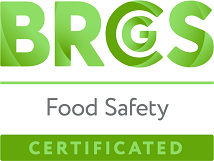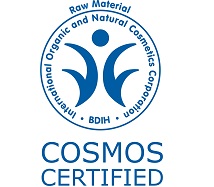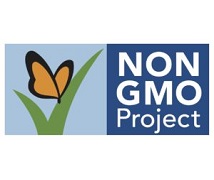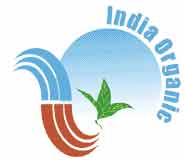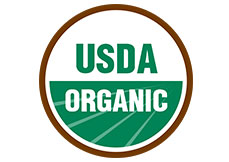
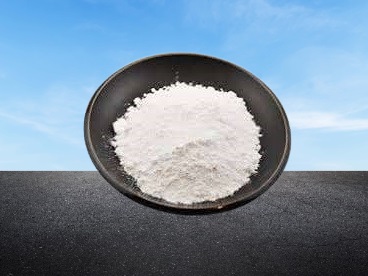
Organic Zinc Powder
The indiscriminately use of fertilizers and pesticides in agriculture can have severe impact on human health ranging from toxicity and deadly diseases. We at ARYAN, are committed to address this challenge by working towards the organic food which uses herbal plants based extracts and adopts phytoremediation for removal of hazardous substances and toxic metals. For last two decades, our group has been involved in the production of Organic botanical extracts, organic essential oils, organic edible oil, organic spices, organic starch, organic flours, organic seeds. Now we are focusing on organic minerals and organic vitamins. By now ARYAN has carved a niche for itself in the field of ORGANIC FOODS and is continuously moving in leaps and bounds. Taking a leaf out of this growth, we intend to start the production of our “Organic Zinc”. Our vitamin is purely organic and does not use any chemical compounds. Unlike other organic Zinc available in the market, ours is totally “Gluten Free”. We have already developed the organic Zinc and shortly file the patent so that commercial production can star in near future.
- Zinc is an essential mineral that is naturally present in some foods, added to others, and available as a dietary supplement.
- Zinc is involved in numerous aspects of cellular metabolism. It is required for the catalytic activity of approximately 100 enzymes and it plays a role in immune function protein synthesis , wound healing, DNA synthesis, and cell division .
- Zinc also supports normal growth and development during pregnancy, childhood, and adolescence and is required for proper sense of taste and smell .
- A daily intake of zinc is required to maintain a steady state because the body has no specialized zinc storage system.
A wide variety of foods contain zinc . many grain- and plant-based foods are still good sources of zinc.Good food sources include beans, nuts, whole grains and fortified breakfast cereals(Chickpeas Chickpeas, Peas(green),Cashews,Kidney beans,Almonds(dry roasted).
Phytates—which are present in whole-grain breads, cereals, legumes, and other foods—bind zinc and inhibit its absorption . Thus, the bioavailability of zinc from grains and plant foods is lower than that from animal foods.
The recommended dietary allowances for Magnesium (Food and Nutrition Board) in both International Units (IUs) and micrograms.
Recommended Dietary Allowances for Magnesium
| Age | Male | Female | Pregnancy | Lactation |
| 0–6 months | 2 mg* | 2 mg* | ||
| 7–12 months | 3 mg | 3 mg | ||
| 1–3 years | 3 mg | 3 mg | ||
| 4–8 years | 5 mg | 5 mg | ||
| 9–13 years | 8 mg | 8 mg | ||
| 14–18 years | 11 mg | 9 mg | 12 mg | 13 mg |
| 19+ years | 11 mg | 8 mg | 11 mg | 12 m |
* Adequate Intake (AI)
Benefits of Zinc
1) Zinc and regulating immune function
Zinc is an “essential trace element” because our bodies only need very small amounts of it.
According to the European Journal of Immunology, the human body needs zinc to activate T lymphocytes (T cells).T cells help the body in two ways:controlling and regulating immune responses,attacking infected or cancerous cells.
2) Zinc for treating diarrhea
A PLOS Medicine study, which “followed a nationwide public health campaign to increase zinc use for childhood diarrhea in Bangladesh,” confirmed that a 10-day course of zinc tablets is effective at treating diarrhea and also helps prevent future bouts of the condition.
3) Zinc effects on learning and memory
Research conducted at the University of Toronto and published in the journal Neuron suggested that zinc has a crucial role in regulating how neurons communicate with one another, affecting how memories are formed and how we learn.
4) Zinc to treat the common cold
Zinc (lozenges or syrup) is beneficial in reducing the duration and severity of the common cold in healthy people, when taken within 24 hours of onset of symptoms.”
5) Zinc’s role in wound healing
Zinc plays a role in maintaining skin integrity and structure. Patients experiencing chronic wounds or ulcers often have deficient zinc metabolism and lower serum zinc levels. Zinc is often used in skin creams for treating diaper rash or other skin irritations.
Zinc and decreased risk of age-related chronic disease
A study from researchers at Oregon State University have found that improving zinc status through diet and supplementation may reduce the risk of inflammatory diseases. It has been known for decades that zinc has a significant role in immune function. Deficiency has been linked to increased inflammation in chronic disease and triggering new inflammatory processes.
8) Zinc for preventing age-related macular degeneration (AMD)
Zinc prevents cellular damage in the retina, which helps in delaying the progression of AMD and vision loss, according to a study published in the Archives of Ophthalmology.
9) Zinc and fertility
Several studies and trials have linked poor zinc status with low sperm quality. For example, one study in the Netherlands found that subjects had a higher sperm count after zinc sulfate and folic acid supplementation.
Deficiency
Normally, zinc deficiency is due to insufficient dietary intake. However, it may also be due to malabsorption and chronic illnesses such as diabetes, malignancy (cancer), liver disease, and sickle cell disease.
Zinc deficiency signs include: loss of appetite,anemia,slow wound healing,skin conditions such as acne or eczema,abnormal taste and smell,depressed growth,altered cognition,depression (more research needed),Diarrhea,hair loss.
Zinc deficiency during pregnancy may increase the chances of a difficult or prolonged birth. Weight loss, delayed healing of wounds, and mental lethargy causes hair loss, diarrhea, delayed sexual maturation, impotence, hypogonadism in males, and eye and skin lesions.
Precautions
Zinc has many health benefits, but excessive zinc intake can be harmful. Adverse effects of severely high zinc intake may include:
Nausea,vomiting,loss of appetite stomach pains,headaches,diarrhea
Excess zinc may suppress copper absorption, according to a study published in Biological Trace Element Research.
There is also some evidence that increased levels of zinc in the body might play a role in the development of kidney stones. Research into this and other health benefits of zinc are happening now, but we have known for decades that zinc is important to good health.
Search Products
- Organic Botanical Extract
- Organic Cereals
- Organic Edible Oils
- Organic Emulsifiers
- Organic Essentials Oils & Extracts
- Organic Fatty Acids
- Organic Flours
- Organic Formulations
- Organic Herbs
- Organic Minerals
- Organic Nutraceuticals
- Organic Nuts
- Organic Oil Seeds
- Organic Pulses
- Organic Special Products
- Organic Spices
- Organic Starch
- Organic Vitamins

